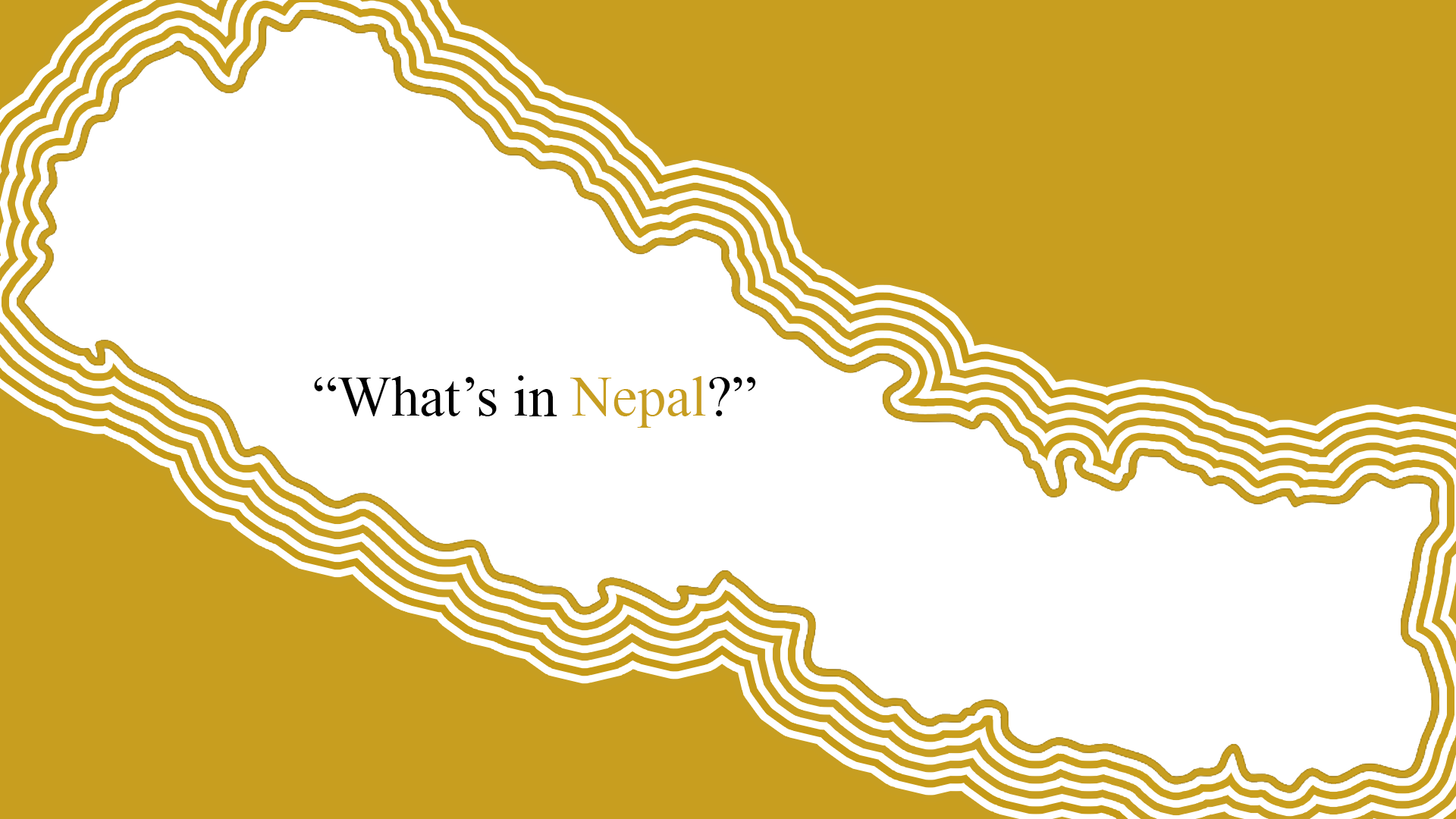Back to Travel
What's in Nepal?
A reflection prior to my trip to Kathmandu, Nepal.

In a world that is more connected than ever, we find ourselves at our most separated. We divide ourselves for the color of our skin and political parties, the jobs we have, and the materials we own. Debates test family relations and lifelong friendships, only in order to feel accomplishment through spewing more information than the other. We let our ignorance and pride blind us, refuse to acknowledge our role in this division, and inadvertently solidify this separation even further.
When I announced to my friends, family, and peers that I was going to Nepal, shock and confusion ensued. Knowing that I was studying computer science, they were baffled at my decision, all asking the same thing—“What’s in Nepal?” And the thing is, I didn’t have an answer. I didn’t know.
What I did know was that we lack complete understanding and empathy towards others and their lives. We live fully invested in ourselves, our family, our friends, without considering the importance of learning and understanding others. We believe we know right from wrong and know the world in its whole, yet fail to recognize how narrow of a lens we see through. We struggle to admit these blindspots, because if we don’t understand the world where our identity is so deeply rooted, then who are we?
“The real source of fear is not knowing. Awareness doesn’t prevent you from living, it makes living that much fuller.”
I’ve always found comfort in discomfort. Over the last several years, I would cling to every opportunity to experience somewhere new, and strive to talk to anyone and everyone. Through my travels, I have found one thing to be most clear—every single person is made up of a unique combination of genes and social experiences. Although we may be able to generalize similarities between each other’s biological and social characteristics, there is such a massive range of combinations that is so unique, not one person is the same. With this in mind, we can only now begin to fully fathom the depth and intricacies of one person, let alone entire communities. Through this, we can begin to develop empathy in things we don’t fully understand or experiences we haven’t truly experienced.
In a world so divided, we need this empathy to be able to cooperate and communicate with each other. This empathy towards others is the key to closing the gap and healing damaged relations with one another.
So what’s in Nepal? I don’t know exactly what there is in Nepal for me, but I hope to gain a deeper understanding of who we are as people, and how we can understand each other empathetically.
“If in this present atmosphere, in which everything depends on money and power, and there is not much concern about the real value of love, if we human beings now lose the value of justice, of compassion, of honesty, then in the future we will face more difficulty; more suffering will come. So it is hard but absolutely worthwhile to try. What is important is that we try our best, and whether we succeed or not is a different question. Even if we do not succeed in this life, that is all right; but at least we have tried to build a better human society on the basis of love.”